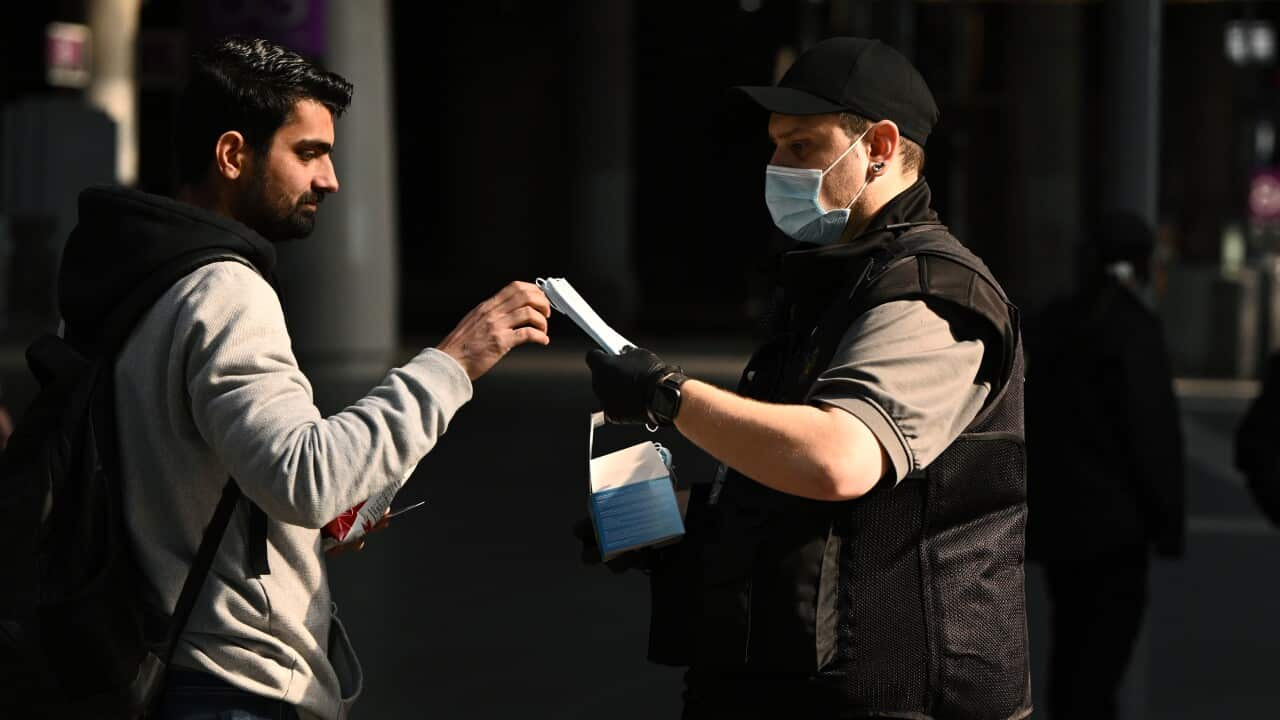Key Points
- Anthony Albanese will meet with state leaders over pandemic leave payments.
- The current cutoff date is September 30.
Pandemic leave payments will be extended indefinitely at current rates beyond the end of this month, National Cabinet has agreed.
The support was due to cease on 30 September, despite a five-day isolation requirement mandated for people who test positive for COVID-19.
Following a meeting with state and territory leaders on Wednesday, Prime Minister Anthony Albanese said the payments will remain available for as long as mandatory isolation periods are applied by all states and territories.
"We remain obviously of the view that if people are sick, whether from COVID or from other health issues, they should not be at work and that is important," Mr Albanese told reporters in Sydney.
"The government has a responsibility to provide support during that period for the appropriate period which is designated."
National Cabinet agreed to continue a 50-50 cost-sharing split between the federal government and the states and territories.
The leave payments have cost taxpayers $2.2 billion since the scheme was first implemented.
The pandemic leave payments were due to expire at the beginning of July but were extended to September following a backlash and a rise in COVID-19 cases.
Mr Albanese said ministers have agreed to cap the maximum number of claims a person can make in a six-month period to three, unless there are extraordinary circumstances.
Since July this year, Services Australia identified that 2.6 per cent of claims received triggered real-time fraud checks. Of those, more than half were subsequently rejected and some 15 per cent were subsequently withdrawn by the claimant.
Mr Albanese said isolation periods of five days for COVID-19 cases and seven days for workers in high-risk settings will remain in place.
He said a decision to lower isolation period requirements was not discussed in detail at the National Cabinet meeting but was likely to be discussed when leaders met in person at the end of the month.
"What we are seeing is gradually a move towards COVID being treated like other health issues," he said.










